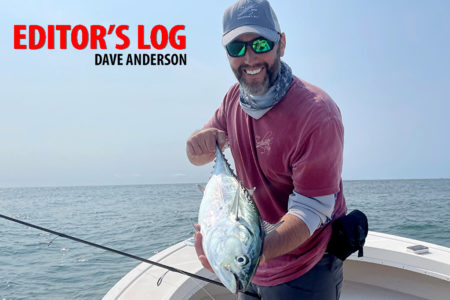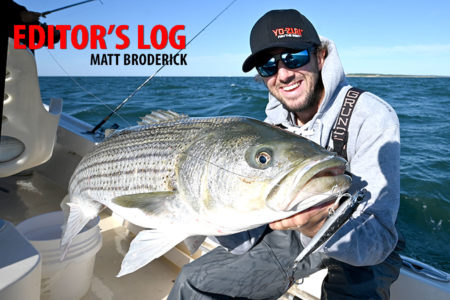I know fisheries regulations can be a touchy subject, but my feelings on that front are that a lot of this saltiness is a result of regs that were never sustainable and the chasm that forms between the two sides of the issue because common sense options are almost never offered. These days we’re conditioned to push for extremes, ‘all or nothing,’ ‘my way or the highway!’ Compromise has degraded from a means to reach a cooperative solution to being seen as a sign of personal weakness.
If you’ve followed along with striped bass regulations at all over the past decade, you’ve undoubtedly heard how petty it can get between passionate players on either side of the issue. Both sides seemed to go into the various meetings with a battlefield attitude, like it was a fight to get exactly what they wanted and anything short of that would be seen as a failure. In the defense of both sides, regs that felt like a compromise were few and far between. And what happened as a result? After too many years without any regulatory changes, we ended up with a slot limit that mandates the release of trophy class striped bass.
Personally, I felt that the slot limit was the best option because I don’t keep many stripers and when I do they tend to be of slot-size anyway. But I know for many charter skippers, it felt like a bum deal because part of what they sell is the opportunity to catch a giant striped bass and not everyone loves to have release a trophy fish. Might we have been able to avoid this if a compromised option had been reached 10 or more years ago? Perhaps a “trophy tag” program not unlike the tag systems most states offer for deer hunters, or even a slot limit that reads like this: one fish between 28 and 35 inches OR 1 fish over 50 inches. Then anglers would have had the option to keep their trophy but the fish in their best breeding years (36 to 49 inches) would be protected. Too many years of inaction have left us with a fishery that recent assessments say requires strict regs to rebuild it, so we won’t see any regulations changes for a few years, but I have to wonder if this type of compromise would’ve worked better and saved us all a lot of unnecessary arguing.
This is why I like what I call the ‘trophy slot’ for tautog that was put into effect in 2022 by Rhode Island, and recent news tells us will also be put into effect in Massachusetts for 2023. The current regs in Rhode Island say that anglers may keep their bag limit for that segment of the season with a minimum size of 16 inches, but only one of those fish may measure 21 inches or greater. The 16-inch minimum size ensures that every fish that survives to that size will spawn at least once, and those fish that reach their most robust spawning years (21 inches and up) will be reasonably protected by the fact that each angler may only keep one large blackfish per trip. This leaves the window open to break personal, club, state and world records, while still protecting most of the species’ all-star spawners.
I am happy to see the tide turning on what these amazing fisheries mean to their respective states and the anglers that live in (or travel to) them. The popularity of togging has exploded over the past few seasons and it’s been a real breath of fresh air to see Rhode Island recognizing the importance of their world class tautog fishery and setting an example of common sense regulation by making a compromise that keeps everyone’s best interests at heart. And now with Massachusetts adopting these common sense regulations, let me be the first to come out and applaud my home state for making the right choice. I can only hope that we will someday see a similar progressive approach applied to striped bass and other fisheries, but for that, we will have to wait and see.




